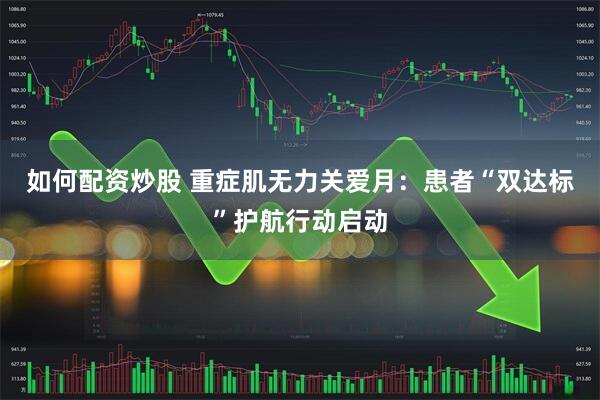
Most people perceive the Middle East as a volatile powder keg, where conflict frequently erupts, leaving little room for lasting peace. Behind many of these tensions, the influence of the United States is often evident. It is widely understood that peace in this region cannot simply be enforced through military strength alone. Over the years, U.S. actions have arguably fueled the flames rather than doused them. Not long ago, the recent ceasefire in the Israeli-Palestinian conflict was announced, but fresh developments have quickly followed. Former President Trump publicly claimed that the U.S. and Iran would engage in negotiations next week to finalize a flawless agreement. It’s widely assumed that this deal would center around Iran’s nuclear program. Unexpectedly, Iran quickly denied these claims如何配资炒股, accusing Trump of mere fantasy. This has complicated the situation further, with many noting that China’s earlier predictions seem to have come true—what exactly is going on?
展开剩余89%1. Trump’s Colossal Falsehood
In recent years, the U.S. political landscape has been highly unstable. Since his bid to return to the White House, Trump’s domestic approval ratings have dropped significantly. With the presidential election just months away, he faces immense pressure to deliver tangible results that could boost his popularity. His latest focus has been on the Middle East. On June 25, during an interview, he confidently stated that Iran had conceded and that formal talks would begin next week, promising a \"perfect agreement\" would soon be unveiled. Speculation ran wild as the Israel-Palestine conflict escalated, involving multiple regional powers, with the fighting intensifying and threatening to engulf the entire area. Suddenly, the U.S. announced a ceasefire, catching many off guard. Although both Israeli and Palestinian sides initially withheld comment, they soon halted hostilities. Still, most saw this pause as merely a temporary break in the fighting. Trump’s subsequent statement about a near agreement with Iran suggested a possible thaw in their fraught relations. Many interpreted this as a major political win for him, potentially defining his legacy. However, shortly afterward, Iran’s Foreign Ministry swiftly denied any knowledge of such talks or agreements, labeling Trump’s claims as pure fantasy. The stark contrast in their statements revealed Trump’s remarks to be a grand deception. While the possibility of calm negotiations between the two long-time adversaries would have been a positive sign, Iran’s firm rebuttal shattered those hopes and publicly embarrassed Trump.
2. China’s Prediction Comes True
Following the outbreak of violence, China condemned Israel’s military actions. Over recent years, Israeli forces, emboldened by strong backing from the U.S. and other Western allies, have operated with near impunity across the region. Their conduct on the battlefield has been widely criticized as brutal and excessive. The ceasefire announcement came unexpectedly, arousing suspicion about underlying motives. China’s foreign minister had earlier remarked that true peace requires more than just military strength to enforce. This statement was implicitly directed at Trump, who had claimed that peace stems from power. China pointed out that America’s military pressure played a crucial role in compelling Iran to agree to the ceasefire, following U.S. airstrikes on Iranian-backed positions. The U.S. approach seems to be that force is the only solution to conflicts and the key to achieving peace. Yet the reality tells a different story—just as Trump announced plans for a perfect deal, the fighting resumed once again, highlighting the futility of relying on military means alone.
3. Israel Faces Fresh Attacks
Although the Israeli-Palestinian conflict appeared to have paused with the ceasefire, the situation remained far from calm. On June 26, the Houthi rebel group launched a large salvo of ballistic missiles at Israel. This militia, a sworn enemy of Israel, firmly supports Iran in the ongoing conflict. Despite the declared truce, the Houthis quickly renewed hostilities, claiming their attacks were in solidarity with Gaza and warning that the strikes would continue until the Gaza issue was resolved. Most of these missiles were intercepted by Israel’s air defense systems, but the attacks still forced the military onto high alert. Civilians who had just emerged from shelters were forced to return underground as sirens blared again. The Houthis have described this assault as only the beginning, with larger operations likely forthcoming. Predictably, Israel is expected to retaliate. Even though Israel and Palestine had ostensibly ceased fire, everyone knows Iran supports the Houthi forces, adding a further layer of complexity and instability to the already volatile region. Amid repeated barrages, Israel is increasingly on the back foot. Reports have emerged indicating Israel’s ammunition supplies are running dangerously low after expending massive quantities of munitions over 12 days of fighting to intercept Iranian missiles. Just as their stockpile was nearly depleted and a ceasefire was reached, the Houthis stepped in to fill the gap. Simultaneously, Iran denied any ongoing negotiations with the U.S., making it clear that Israel is unlikely to avoid further attacks. This series of events signals that America’s Middle East strategy is unraveling. Trump is cornered: Iran rebuffs his proposed talks, and without continued support for Israel, years of U.S. regional efforts could be undone. What drastic moves he might make next remains to be seen.
Conclusion
Peace can only be maintained through collective effort, not through the barrel of a gun. Everyone wishes for lasting tranquility in the Middle East, but if the U.S. continues to enable Israel’s aggressive actions, the region will remain trapped in endless turmoil. Signs increasingly point to America’s stance fueling instability, injecting unpredictability into an already fragile situation. The current trajectory appears to be spiraling out of control. This reality underscores that hegemonic approaches no longer suit the contemporary world. Unless the U.S. swiftly recalibrates its strategy, it risks facing severe consequences that could undermine its global standing. The only viable solution is diplomatic dialogue—resorting to force will only fan the flames and deepen the conflict.
[Disclaimer] The timing, events, and images referenced are sourced from public internet materials. This article aims to promote positive understanding and contains no vulgar or misleading content. Readers should approach the subject rationally and avoid personal attacks or biased comments. The internet is not a lawless space. Should there be any disputes regarding accuracy, copyrights, or image use, please contact the author for resolution and removal.
References:
Shi Xiaoxiao 2025-06-28 “China’s Prediction Proved Right! Trump’s Huge Lie, Israel Gets Hit Again”
Professor Li’s Sharp Commentary 2025-06-28 “China’s Prediction Verified: Trump’s Big Lie and Israel’s Renewed Strikes”
First Military Intelligence 2025-06-28 “Trump Reverses Course, Threatens Iran Again, China’s Prophecy Comes True”
发布于:天津市宝尚配资提示:文章来自网络,不代表本站观点。






